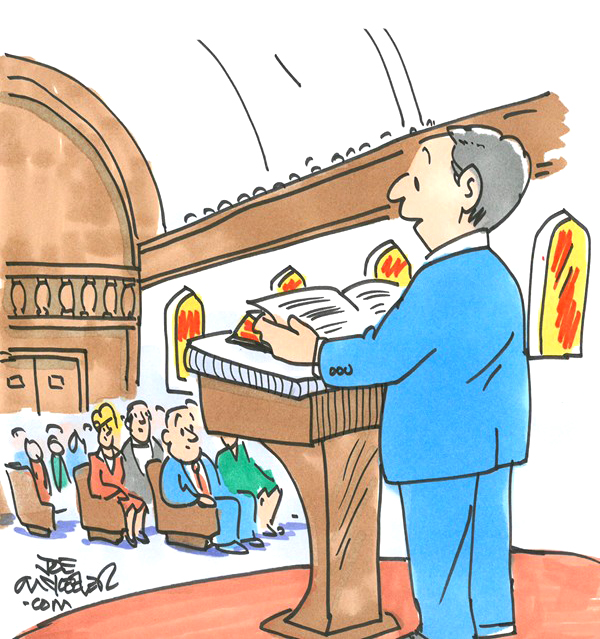
NASHVILLE (BP) — In response to the release of a series of videos showing Planned Parenthood employees reportedly discussing the sale of baby parts obtained through abortion, evangelicals have expressed a range of views on the eternal destiny of children who die in infancy.
Among Southern Baptists, most agree Scripture suggests aborted babies — along with others dying in infancy and individuals with severe mental disabilities — go to heaven. But pastors and theologians disagree on various related issues from the clarity of Scripture on children’s salvation to whether infants bear guilt before God.
Points of agreement include the evil of abortion and the goodness of God.
“As tragic as this situation is,” Connecticut pastor David Saylor said of infant deaths, “it’s not beyond the sovereign power of God to be in control of. We’re not totally lost to our situation. We’re still in the hands of God.”
Saylor, pastor of First Baptist Church in Manchester, Conn., told Baptist Press he doesn’t think the Bible “specifically or directly” explains the eternal destiny of infants who die in infancy or other persons mentally unable to understand the concepts of sin and faith. While Christians “can’t be dogmatic about what God hasn’t chosen to clearly reveal to us,” Saylor believes “God may apply Christ’s blood to those who are unable to accept by faith the gift of salvation.”
Infants are not innocent before God because they bear guilt that is imputed to all humans due to Adam’s sin in the Garden of Eden, Saylor said, citing Psalm 51:5 and Romans 5:12-14. “A baby just born or in the womb hasn’t sinned personally yet, but he has a fallen nature and that’s the issue God has to conquer.”
Saylor’s belief that God “may” apply Christ’s blood to infants is based on his notion of “the justice of God” rather than a specific Scripture passage, he said. It is reasonable to speculate that if children “haven’t come to the point where they can have faith, then God may apply Christ’s blood even without that faith,” Saylor said.
Doug Melton, pastor of Southern Hills Baptist Church in Oklahoma City, believes the Bible allows Christians to express greater certainty about the eternal destiny of babies who die in infancy.
“Whenever we take the full context of Scripture,” Melton told BP, “I have a real hard time sitting in front of a mom and dad and saying to them, ‘I don’t know where your stillborn child is.'”
Infants who die in infancy go to heaven, Melton said. He based his view, first, on the Old Testament teaching that God only punished Israelites 20 and older when the nation rebelled against Him on the edge of the Promised Land. In contrast, God allowed younger people to enter the land after 40 years of wilderness wandering. Adolescents and children were not barred from the land presumably, Melton said, “because they had not willfully rebelled against God.”
That account from Numbers 14, he said, is “a type that’s pointing ahead to the scriptural understanding of heaven.”
Second, Melton said Romans 1:20 suggests individuals unable to “perceive” God through observation of His creation “are not held accountable because they have not willfully rebelled.” All humans inherit a sinful nature from Adam, Melton said, but Scripture only threatens punishment for personal sin.
Despite infants’ lack of moral culpability, Melton believes they are saved by Christ’s atonement, though he does not “fully understand” how that salvation transaction works.
Beliefs of ‘most Southern Baptists’
In 2013, a Calvinism Advisory Committee appointed by Frank S. Page, president of the Southern Baptist Convention’s Executive Committee, acknowledged disagreement among Southern Baptists on some issues related to infant salvation — such as whether all humans inherit Adam’s guilt. But the committee noted in its report, “Most Southern Baptists believe that those who die before they are capable of moral action go to heaven through the grace of God and the atonement of Christ, even as they differ as to why this is so.”
Among committee members to express their views on the death of infants is Steve Lemke, provost at New Orleans Baptist Theological Seminary. In a 2010 article for Louisiana’s Baptist Message newsjournal, Lemke argued “children are not morally accountable until ‘they are capable of moral action,'” referencing Article III of the Baptist Faith and Message.
The section of the BF&M Lemke referenced states, “As soon as [humans] are capable of moral action, they become transgressors and are under condemnation.” Both the 1925 and 1963 editions of the BF&M make similar statements.
Baptists, Lemke wrote, typically “do not believe in inherited guilt.” Drawing on the new covenant prophecies in Jeremiah 31 and Ezekiel 18 among other Scriptures, Lemke argued humans “are only accountable under the new covenant for our own sins.” Therefore, “Baptists have always believed that since infants are not yet capable of actual sin, they go to heaven.”
Calvinism Advisory Committee members R. Albert Mohler Jr. and Daniel Akin wrote in a 2009 article, “We are born marked by original sin, and thus we cannot claim that infants are born in a state of innocence.” Yet “we are to be judged on the basis of our deeds committed ‘in the body,'” presumably a reference to 2 Corinthians 5:10.
Scripture “does not teach that we will answer for Adam’s sin,” wrote Mohler and Akin, presidents of Southern Baptist Theological Seminary and Southeastern Baptist Theological Seminary respectively. Therefore, “heaven will be filled with those who never grew to maturity on earth.”
A historical perspective
Historically, the questions of whether infants bear guilt and the eternal destiny of those dying in infancy have been debated. As Mohler and Akin noted, the fourth-century church father Gregory of Nyssa believed infants, along with all other humans, would have an opportunity after death to confess Christ as Savior. Another fourth-century Christian, Ambrose of Milan, believed baptized infants would go to heaven while unbaptized infants would not, though he said they received immunity from the pain of hell.
The 17th-century Westminster Confession of Faith argued, “Elect infants, dying in infancy, are regenerated, and saved by Christ, through the Spirit … so also are all other elect persons who are uncapable [sic] of being outwardly called by the ministry of the Word.” Particular Baptists’ 1689 Second London Confession echoed that assertion, along with its implied distinction between elect and non-elect infants.
In the 18th century, John Wesley, the father of Methodism, dealt with the issue of infant guilt by arguing Christ’s death removed original guilt from every human so that no one is eternally condemned for Adam’s sin, according to an article by Leo Cox in the Bulletin of the Evangelical Theological Society. Wesley himself wrote that Adam’s sin “is imputed to all men.” But “that any will be damned for this alone, I allow not, till you show me where it is written. Bring me plain proof from Scripture, and I submit; but till then, I utterly deny it.”
Baptist preacher Charles Spurgeon said in an 1861 sermon, “We say, with regard to infants, Scripture saith but little, and, therefore, where Scripture is confessedly scant, it is for no man to determine dogmatically. But I think I speak for the entire body, or certainly with exceedingly few exceptions, and those unknown to me, when I say, we hold that all infants are elect of God and are therefore saved.”
‘Stand together’ on Scripture
Among Baptists today, Wayne Robertson, pastor of Morningside Baptist Church in Valdosta, Ga., takes a position on infant salvation with echoes of several historical figures.
“I do understand that infants are a member of Adam’s fallen race and are born with a sin nature,” Robertson told BP in written comments. “I believe the Scriptures teach that condemnation is based on the rejection of God’s revelation whether general or specific and not based on ignorance of it. I hold the position that the unborn and infants have not comprehended general revelation nor have they been given special revelation and as a result, have not been declared ‘without excuse’ (Romans 1:18-20).
“Therefore, trusting the many Scriptures that tell us that Jesus expressed His love for children, such as Matthew 19:13-15, I believe that Christ’s atonement covered the guilt of these infants,” Robertson said.
As Christians continue to discuss the eternal destiny of infants, Melton, of Southern Hills in Oklahoma City, urged charity among those who trust the authority of Scripture.
“There’s a whole lot of different interpretations of Scripture,” Melton said, “and I believe everyone is trying to stand together on what Scripture teaches.”





















